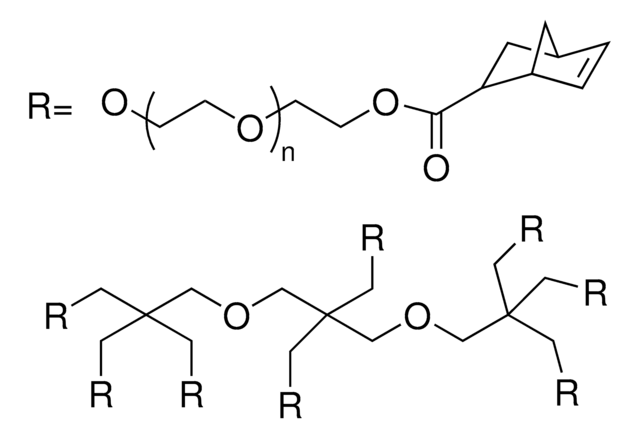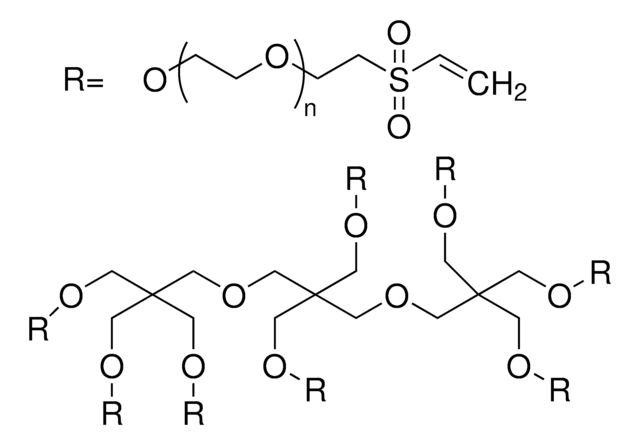808474
4arm-PEG10K
average Mn 10,000, norbornene
Synonym(s):
PEG-nb, PEG-norbornene, Polyethylene glycol
About This Item
Recommended Products
product name
4-arm Poly(ethylene glycol) norbornene terminated, average Mn 10,000
form
powder
Quality Level
mol wt
average Mn 10,000
mp
43-48 °C
storage temp.
−20°C
Looking for similar products? Visit Product Comparison Guide
Application
Storage Class Code
11 - Combustible Solids
WGK
WGK 3
Flash Point(F)
Not applicable
Flash Point(C)
Not applicable
Regulatory Listings
Regulatory Listings are mainly provided for chemical products. Only limited information can be provided here for non-chemical products. No entry means none of the components are listed. It is the user’s obligation to ensure the safe and legal use of the product.
JAN Code
808474-BULK:
808474-1G:
808474-VAR:
Certificates of Analysis (COA)
Search for Certificates of Analysis (COA) by entering the products Lot/Batch Number. Lot and Batch Numbers can be found on a product’s label following the words ‘Lot’ or ‘Batch’.
Already Own This Product?
Find documentation for the products that you have recently purchased in the Document Library.
Customers Also Viewed
Articles
Hydrogel-based biomaterials for cell delivery and tissue regeneration applications are discussed.
Immune system defends against disease by hydrolyzing foreign molecules; proteases, nucleases, liver, and kidneys are involved.
Our team of scientists has experience in all areas of research including Life Science, Material Science, Chemical Synthesis, Chromatography, Analytical and many others.
Contact Technical Service













